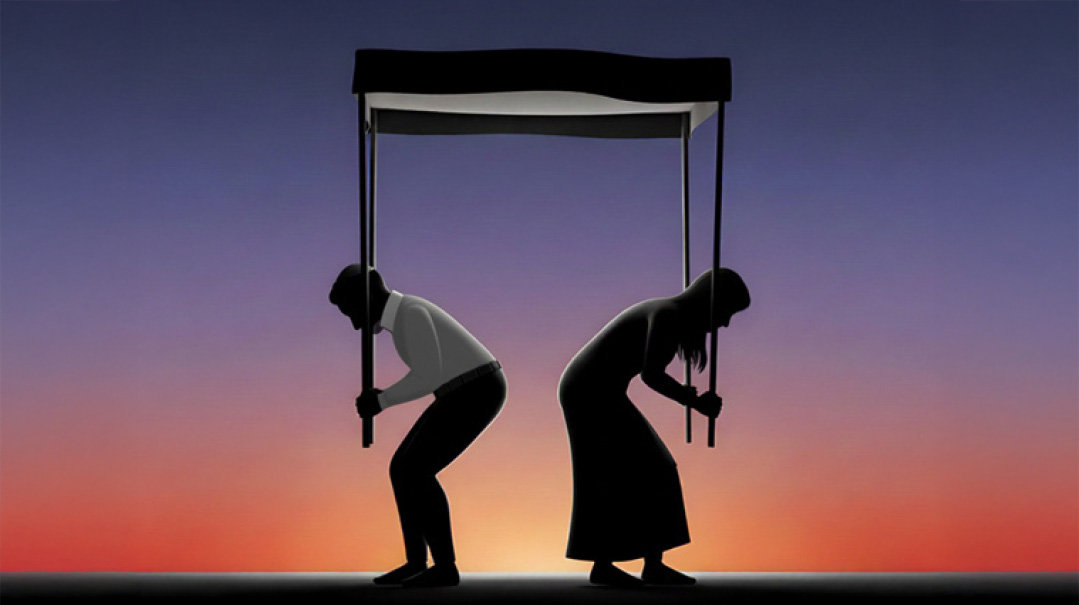Pulling Out


In honor of a Mishpacha staff event two weeks ago, we asked our writers to answer ten questions. One of them was, “Which interviewee taught you the most about the interview process?”
The answer that elicited a collective groan was definitely Zivia Reischer’s. She wrote: “The one who pulled his approved article 24 hours before printing. I learned that the most important interview question is, ‘Is your wife okay with this?’”
Zivia’s hard-won wisdom is something all too many Mishpacha writers identify with. I remember working on a special Yom Tov supplement years ago. We had commissioned a very specific piece about a figure in the food industry to fill a slot in our overall plan. The piece was ready to go into editing when the subject pulled the same line as Zivia’s nameless interviewee (“my wife isn’t comfortable with the publicity”).
Years ago, a chassidic rebbe gave us an interview about his father, a tzaddik whose little-known legacy he wanted to share. The piece was written, the photo shoot was done, the story was slotted into the next week’s magazine — and then the rebbe had second thoughts. We had a 10 Questions column pulled because “My father doesn’t let — but after 120 I’ll be in touch with you.” Just this past Succos, another piece was pulled when the subject got scared that she was revealing too many personal details about her marriage. This has happened with LifeLines stories too — after a long process of several revisions where complete anonymity was guaranteed, the narrators (or their spouses) suddenly got scared to expose their stories to the public.
What do you do when this happens?
Well, you can make sure it doesn’t happen by not bothering to show the interviewee the piece. But that’s not Mishpacha’s style. We want every interviewee to be proud and happy with the final result — even if it means multiple rounds and multiple drafts. And we’d rather put the relationship first, even it comes at the cost of a scoop.
So most of us first try the diplomacy route — talk it out, try to identify the problem, isolate the sticky sentence or paragraph, and figure out a way to finesse it. Sometimes that works. Not always.
Some writers or editors might get down on their figurative knees as their next technique — calling the wife, the children, the mother, the rav — and begging for a second chance. I’ve done this more than once and I can’t remember it working, to be honest.
The third step is swallowing hard and resigning yourself to the fact that the piece is not going to print.
(If you’re like veteran writer Binyamin Rose, you also file away the interview with the knowledge that at some point down the line, those quotes might be given a second lease on life. It’s happened more than once in a news context. And we’ve had LifeLines stories go to print months or years after they were pulled, when life circumstances changed and the narrators were ready.)
What does a pulled piece mean on a logistical level? It means that you will be scrambling to fill a hole in your grid, that the company will have to swallow a loss (or several losses, if a photo shoot already took place), and most importantly, that your writer has worked incredibly hard and will not reap the well-deserved satisfaction of a story in print.
Even writers who will get paid for their work experience a searing disappointment when it gets pulled. Our writers build their pieces with an audience in mind and push through the (often painful) writing process visualizing you all — and considering which word, which opening, which quote will best convey the story to the readership. As one writer described the disappointment to me: “I would have rather seen the article printed and not gotten paid.” That’s how much it stings.
So why do those interviewees pull out? You might ask, why do they agree in the first place? We’re a community that values privacy; we believe in modesty and internality as prime values. “Revealing it all” is the last thing we want to do.
If you think about it, going public while staying private is probably one of the hallmarks of the frum media. We’ve managed to forge an interesting genre of journalism — it feels personal and open but still steers clear of the private spheres of life. This public-yet-private style of writing takes talent and discretion, and it’s a tough balancing act for everyone involved.
So why do our interviewees go public? Some may be looking for publicity or a way to increase their name recognition, but in my experience, most agree because they have something of value to share. Because they wish to highlight a forgotten person or achievement. Because they possess valuable expertise or information. Because they’re hoping to make a difference.
Many of those interviewees go through the process with a degree of trepidation, dancing between the desire to share and the need to maintain their privacy. It only gets scarier when the writer sends you a draft and you see, in that tight text crawling across your screen, your words and emotions and kishkes exposed.
Our writers and editors know how hard this can be. We know because many of us are working at the same balancing act — conveying a tone that’s warm, personal, and unpretentious while maintaining our (and our families’) privacy. We agonize over the same things that worry our interviewees. Too much? Too strong? Too “me”?
The ironic thing about all the hesitation, is that we keep getting such warm, positive feedback from those people who do go ahead with their interviews. They form new relationships and renew old ones, they find themselves serving as resources for the community, they see the impact their words can have.
So to those members of the “pulled interview” club, I can tell you that we understand why you hesitate. At the same time though, I’d ask you to consider the words of that frustrated writer whose piece will never go to print:
“I wish people who committed to being interviewed realized that we put so much of ourselves in our pieces and would think twice, no, three times, before making a decision to pull. I get why she pulled it. I wish she had thought it through before she agreed.”
(Originally featured in Mishpacha, Issue 742)
Oops! We could not locate your form.







